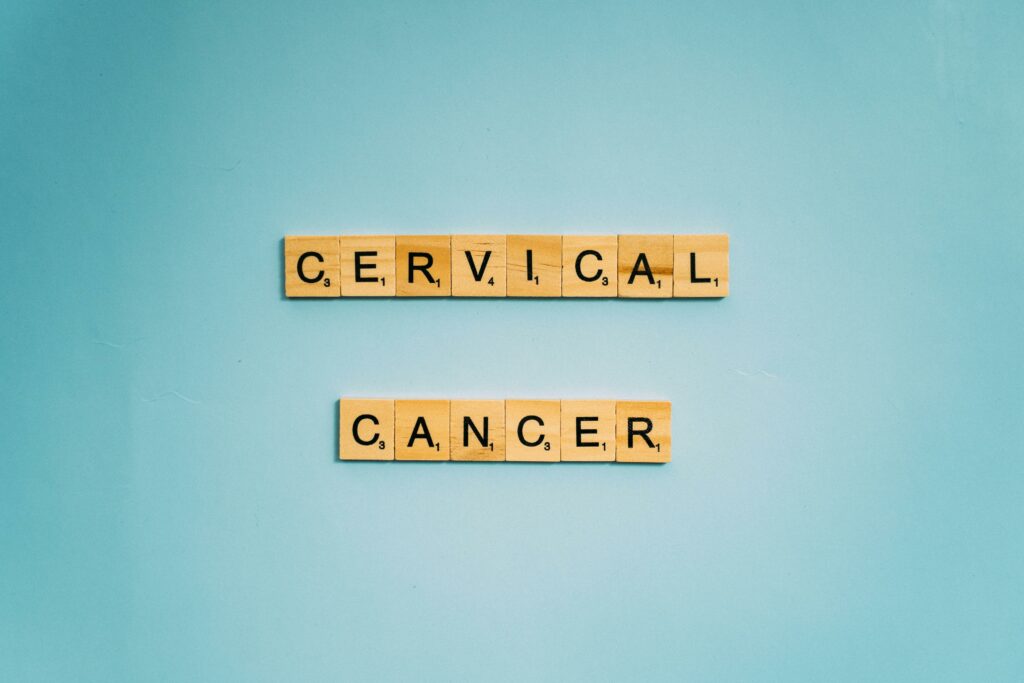Cervical cancer is the fourth most common cancer among women worldwide, according to the World Health Organization. It affects hundreds of thousands of women each year. While any woman can be diagnosed with this form of cancer, it is especially present in low- and middle-income countries where access to screening and vaccination remains limited. In 2022, an estimated 662,000 new cases of cervical cancer were diagnosed globally, and approximately 349,000 women died from the disease.
Cervical cancer starts when abnormal cells grow in the lining of the cervix. Most cases develop after a long-lasting infection with certain high-risk types of human papillomavirus (HPV), a very common virus spread through intimate contact.
If the infection doesn’t go away on its own, these viral changes can slowly turn healthy cervical cells into precancerous or cancerous ones over several years. As the disease advances, it can cause pelvic pain, painful urination, or other complications that may affect fertility, The American Cancer Society notes. Because cervical cancer usually grows slowly and may not cause early symptoms, regular screening and timely treatment are key to preventing severe outcomes.
According to NHS, some common signs of cervical cancer women should be aware of are:
1. Abnormal Vaginal Bleeding
This unusual bleeding may occur between menstrual periods, following and intimate intercourse, or after menopause as a result of weakened blood vessels that can break easily because of the cancer. While this bleeding can be a result of other symptoms or conditions, if it persists or gets worse, it is best to consult a doctor and check for cervical cancer.
2. Unusual Vaginal Discharge
While it is not unusual for women to have some vaginal discharge, if it starts looking, smelling, or feeling differently than usual, you may want to consult your gynecologists just to be sure nothing serious is taking place. In case you experience vaginal discharge, pay attention to the color (watery, light pink, or brown), the smell (a strong and a bad one), and if the discharge is heavier than usual because all these can be red flags that need to be shared with your gynecologist.
3. Persistent Pelvic Pain or Discomfort
If the pain you feel in your pelvic isn’t related to ovulation, your period, or other common causes, it can hint at cervical cancer. Always consult your doctor if the pain at this part of your body is persistent and puts pressure on your lower abdomen, it’s sharp and feels like a stabbing pain, or you feel it in your low back or your hips.
4. Pain During Intercourse
Some women experience pain during sex as one of the first unusual signs of cervical cancer. It can happen when the cervix or the tissues around it are affected, causing discomfort or soreness. This kind of pain is not something you should ignore. If you start having pain during sex that is new or happens often, it’s important to get it checked.
5. Unexplained Weight Loss and Fatigue
Unexplained weight loss and fatigue are not exclusive to cervix cancer, on the contrary, they are both common symptoms for a number of cancers and other conditions, but they also appear when a woman suffers from cervical cancer.
As with all cancers, in most cases prevention is key. In order to lower your risks of getting cervix cancer make sure you have routine screenings like PAP smears regularly, have the HPV vaccine (recommended for preteens aged 11 to 12 years), engage in safe intercourse, and maintain healthy lifestyle by having a balanced diet. Some risk factors are persistent HPV infection, smoking, a supressed immune system, this form of cancer running in the family, having multiple full-term pregnancies, and others.
Disclaimer: This article is for informational purposes only. Consult a healthcare professional if you notice warning signs or changes in your body.
Please SHARE this article with your family and friends on Facebook.
Bored Daddy
Love and Peace


